My Dad Tried to Undo My Home Modifications—Then Dropped a Bombshell About My Nephews
OP’s story begins with what should’ve been a simple family visit—but quickly devolves into emotional whiplash. Her father, visiting her newly renovated home for the first time in a while, seems almost immediately on edge. The renovations were made to support both OP and her husband’s chronic health conditions, and they’ve made a huge difference in daily life. But instead of being happy for them, her father fixates on how “weird” the house is, even damaging one of the modifications during his visit.
But that wasn’t even the most shocking part. In the middle of arguing about her house, her dad blurts out that it’s “just not going to work when Billy and Bobby move in.” Billy and Bobby are OP’s nephews—her brother’s kids—and there had been zero conversation or suggestion that they’d ever live with her. Stunned and confused, she tries to press her dad on what he means, but he refuses to elaborate and tells her to forget he said anything.
Later, in an update, OP shares that she spoke with her brother, who was just as confused and shocked as she was. There’s no plan, no emergency, and no scenario in which OP would be expected to take in the boys. While there are no obvious signs that their father is in cognitive decline, the weird comment and behavior raise red flags. The siblings suspect it might be more about control than confusion—especially since their dad has a history of manipulation, OCD-driven fixations, and pushing his own agenda.
This woman invited her dad for a visit, but his comments and actions made little sense

She wasn’t sure if it was manipulation or a sign of cognitive decline

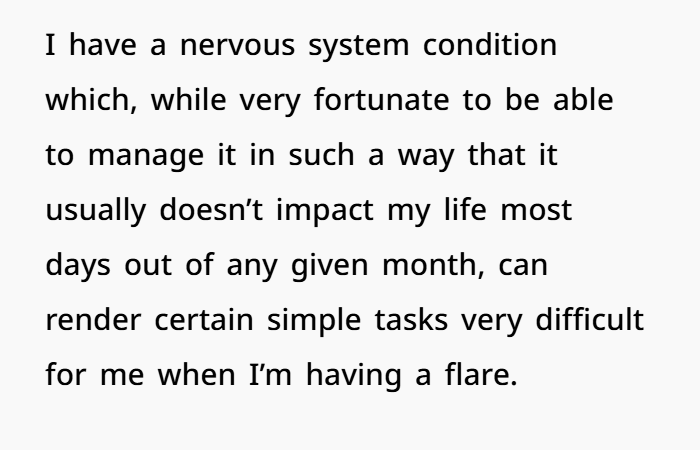
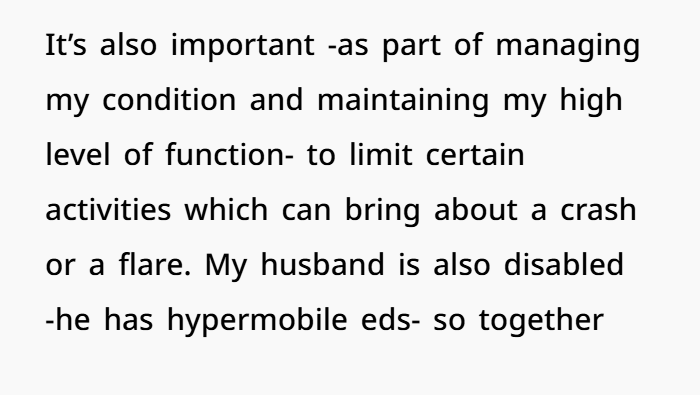
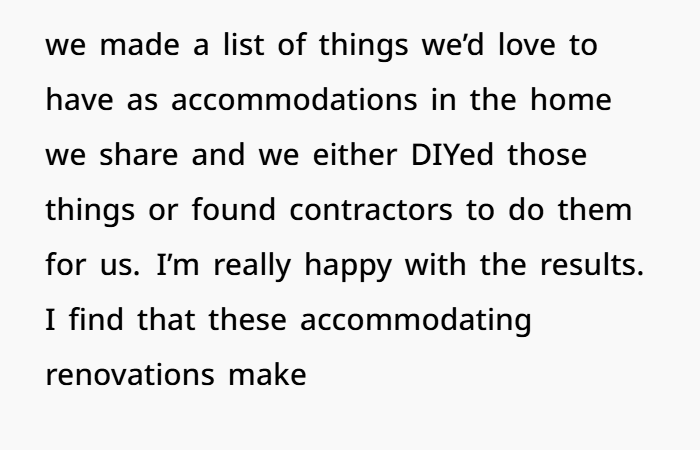
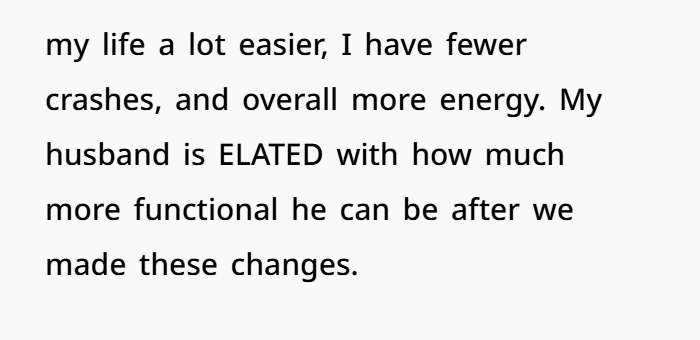
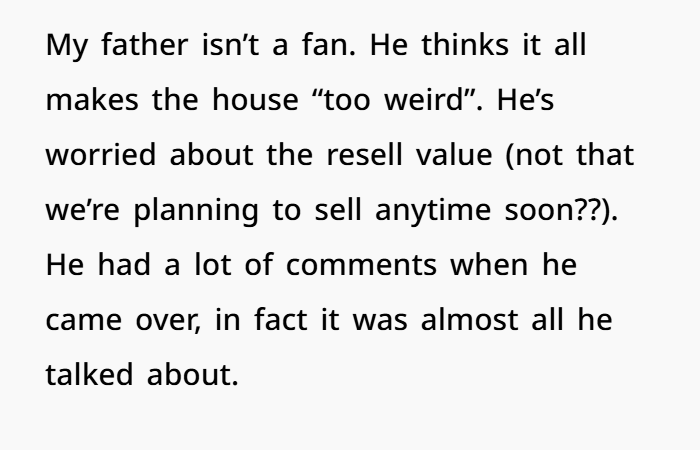
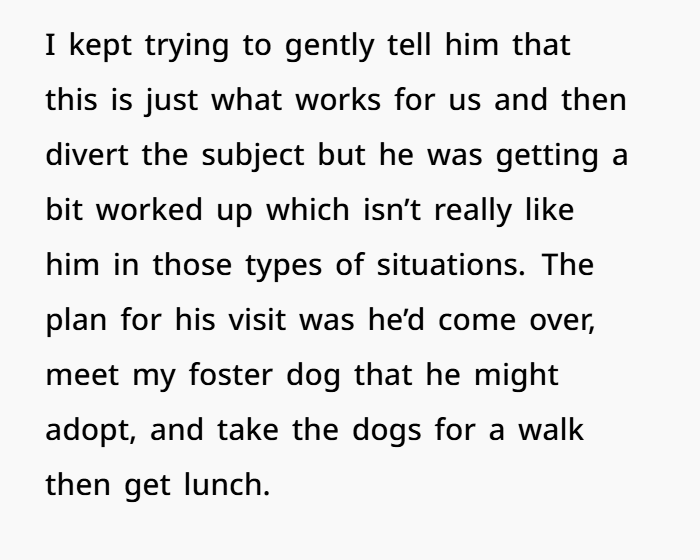
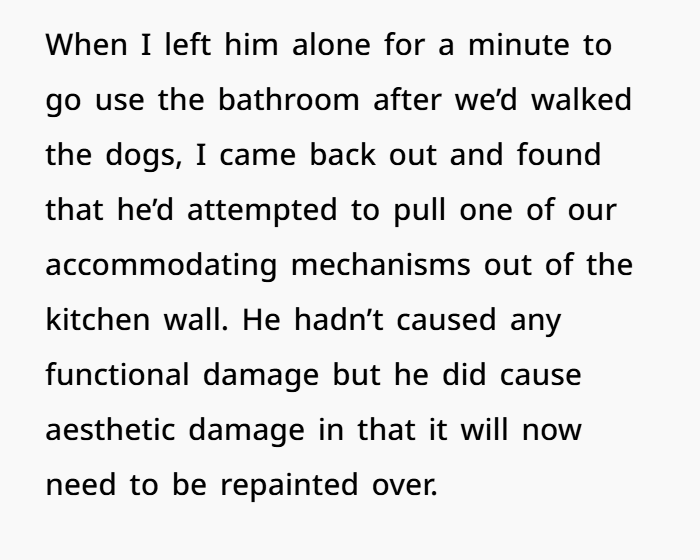
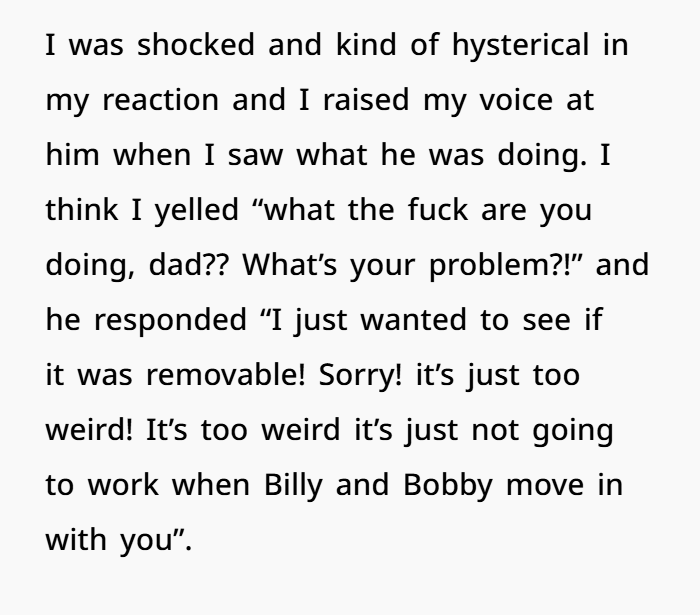
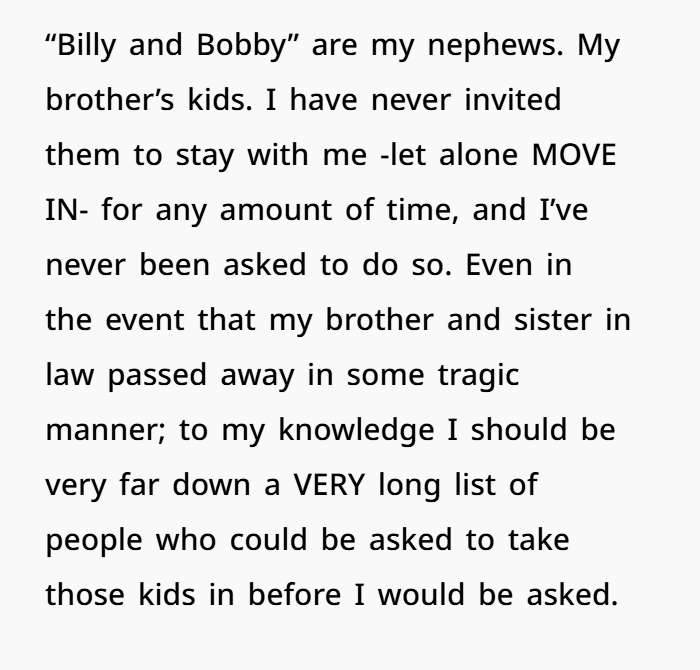
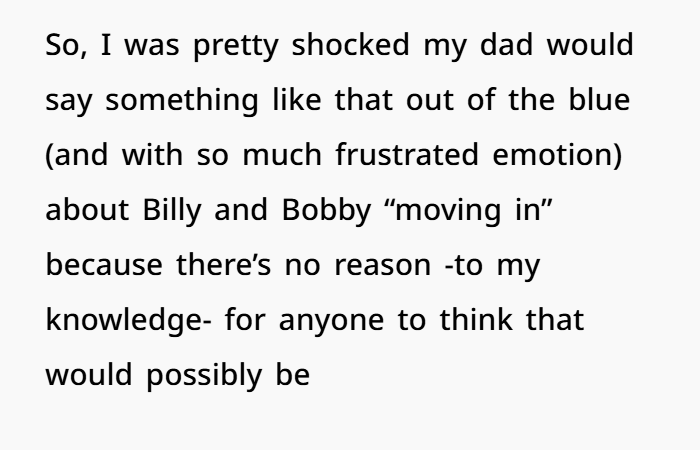
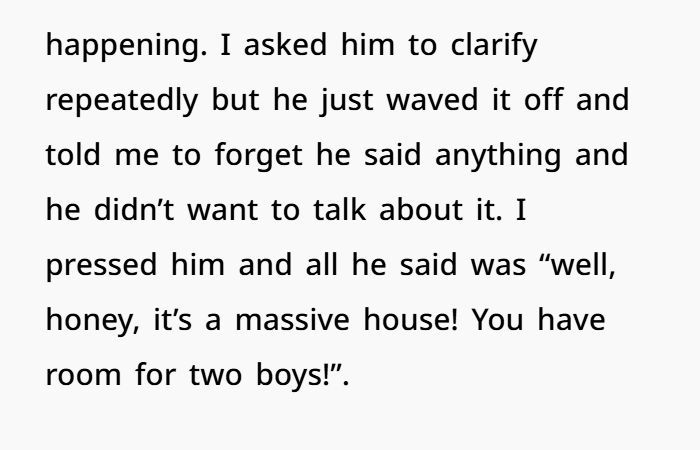
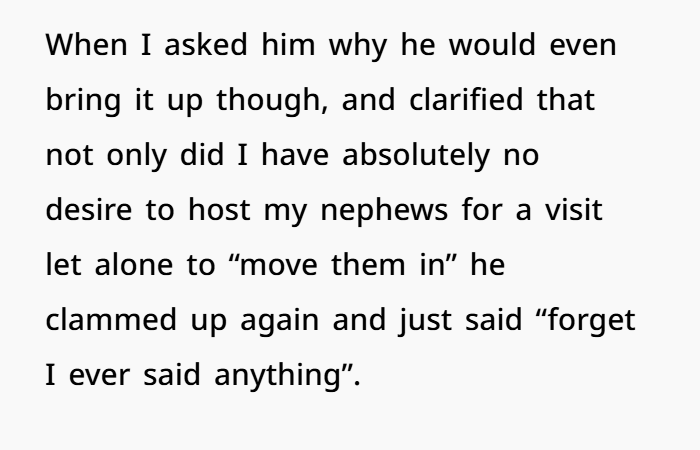
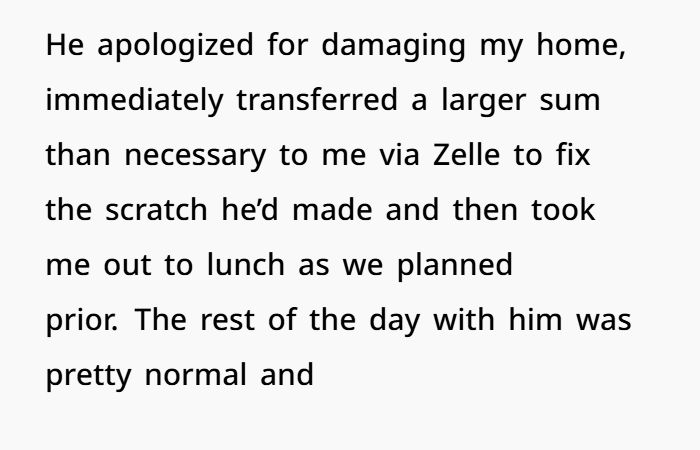
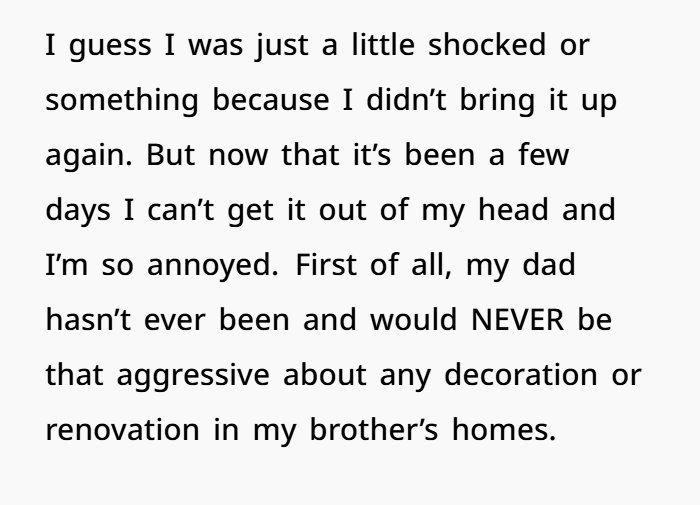
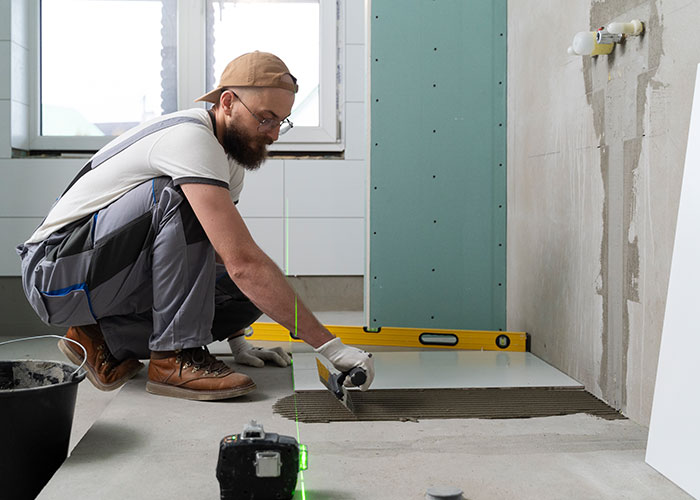
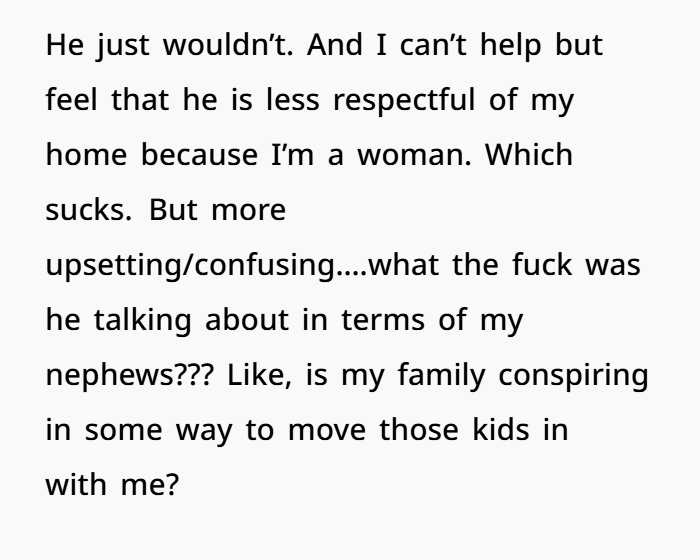
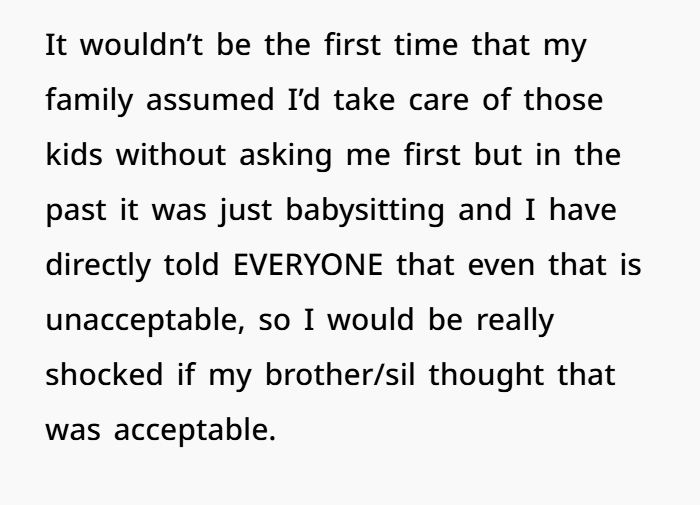
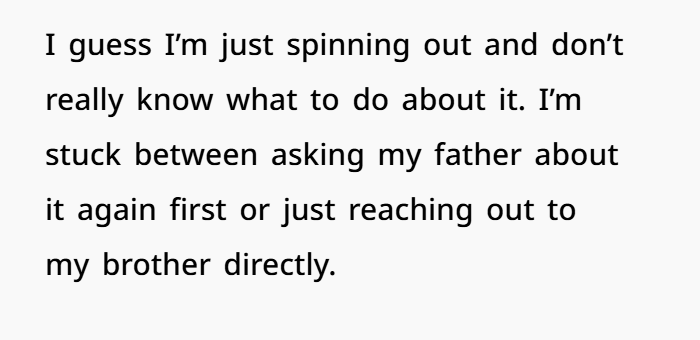
Okay, let’s unpack this. Because this story hits a nerve for a lot of people—especially women who find themselves quietly cast as the “fallback caregiver” in their families. It’s a pattern. It’s subtle. But it’s real. And it gets even more complicated when disability, gender, and generational dynamics all get tangled up.
Let’s start with the biggest, most jarring part: OP’s dad just casually assumes her nephews might move in someday—and even adjusts his behavior (and judgment!) around that delusion. It’s worth asking: Why would he think that? And why is he acting on it, without talking to anyone first?
1. The Unspoken “Caregiver” Gender Bias
Let’s be real: women—especially women without children—are often unfairly seen as the family’s emergency plan. The “default” caregiver. If a relative gets sick? “She can take care of them.” If someone dies? “She’ll take the kids.” This assumption gets worse when a woman owns a home, doesn’t appear to have dependents, or (as in OP’s case) is perceived as more emotionally responsible.
This is called “kin-keeper bias”—a term sociologists use to describe the invisible expectation that women will take on emotional and physical labor in families, often without being asked. It’s rooted in old-school, patriarchal family structures where caregiving falls to daughters or sisters, regardless of their own lives, boundaries, or limitations.

It doesn’t help that OP’s home is bigger—her dad even said, “It’s a massive house! You have room for two boys!” Like she’s a backup foster home waiting to be activated.
But OP isn’t child-free because she’s living a breezy life. She’s managing a serious chronic health condition, runs two businesses from home, and has a partner who’s also disabled. That doesn’t just make her an unlikely candidate—it makes her an inappropriate one.
2. When “Helpful” Becomes Manipulative
There’s another layer here that’s super important: OP describes her father as a “loving man” but also a manipulator with a tendency to lie, triangulate, and fixate. And that’s a powerful mix when it comes to older family members who still think they know best.
Many of us have a parent (or know someone who does) who weaponizes concern. They act like they’re being helpful when they’re actually undermining your autonomy. They push ideas under the guise of “preparing for the worst,” but it’s really about control.
This could easily be a case of what psychologists call “instrumental lying”—when someone lies to try and nudge you toward a goal they believe is good for you (or the family), even if it’s manipulative. Maybe OP’s dad thinks she should raise the boys if anything happens, and he’s laying subconscious groundwork to make that more likely.
Also, people with OCD-like tendencies can get hyperfocused on one scenario—often worst-case ones—and start making plans around that, even when it’s not logical. They don’t mean harm, but they do cause chaos.
3. Cognitive Decline vs. Control Freakery
OP and her brother are now weighing a big question: is this an early sign of cognitive decline? Or just classic dad behavior on overdrive?
This is a super tricky line to walk. According to the Alzheimer’s Association, early signs of cognitive decline often include confusion, memory loss, and trouble completing familiar tasks. But those aren’t the only signs—emotional changes like paranoia, overreaction, and obsessive behavior can also pop up early on.
It’s wise that OP and her brother are taking this seriously. Even if there’s no decline happening right now, catching early red flags can lead to better long-term care planning. A gentle cognitive screening test by a neurologist or geriatric psychiatrist could clear up any doubts.
But if it turns out his mind is totally fine? Then we’re back to a more familiar problem: emotional manipulation wrapped in concern.
4. Healthy Boundaries—Even With “Well-Meaning” Parents
Here’s the good news: OP did the right thing. She talked to her brother. She laid out her boundaries. And now, they’re planning a direct, clear conversation with their dad.
This is exactly how you handle manipulative parents—whether they mean harm or not. Clarity is kindness. So is honesty.

If the dad is pushing an agenda (even subconsciously), this conversation makes it clear: OP’s home isn’t an option. And if something is going on with her brother and SIL that the dad knows about and they don’t? This forces it out into the open.
5. When Disability Is Dismissed
We also gotta talk about how OP’s dad physically damaged her home trying to remove one of her disability accommodations. This isn’t just rude—it’s ableist. It sends a message that accessibility is “weird,” or disposable.
Let’s be clear: home modifications for chronic illness or disability are not aesthetic choices—they’re survival tools. And treating them like tacky decor isn’t just insensitive. It’s dangerous.
OP’s house is her safe zone. Her dad’s comment about resale value? Irrelevant. He doesn’t live there. He doesn’t have to manage daily pain or flares. Her modifications work for her and her husband—and that’s all that matters.
As people reacted to the woman’s story, she provided them with more information on her dad and their argument
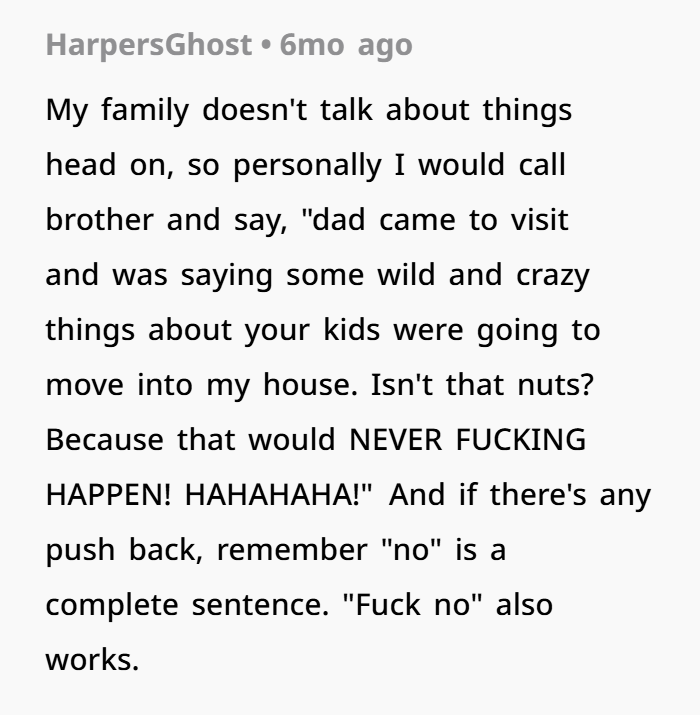
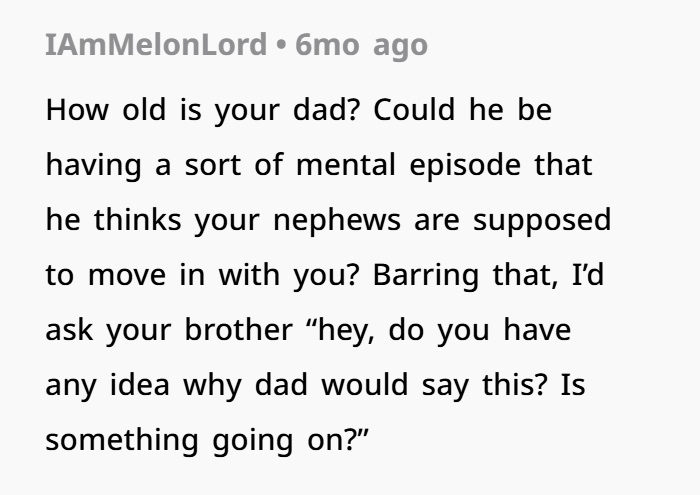
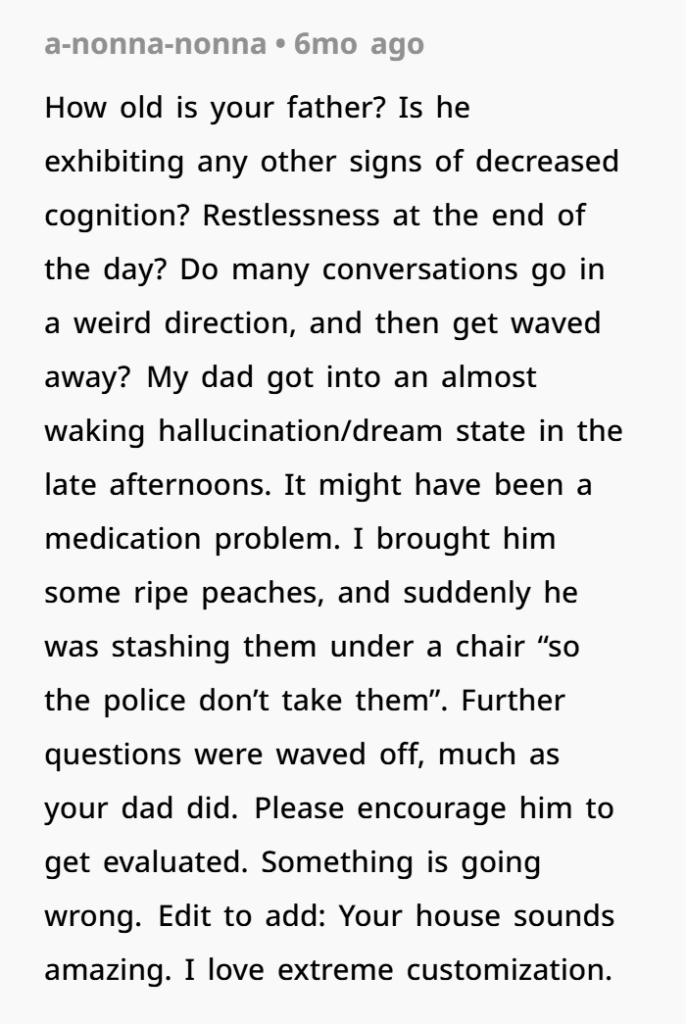
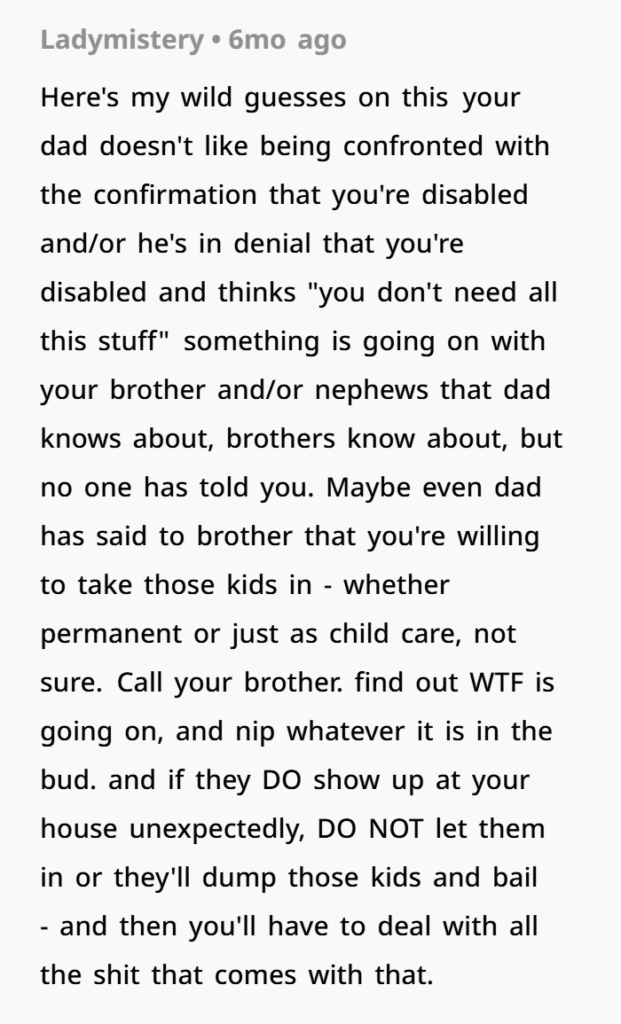
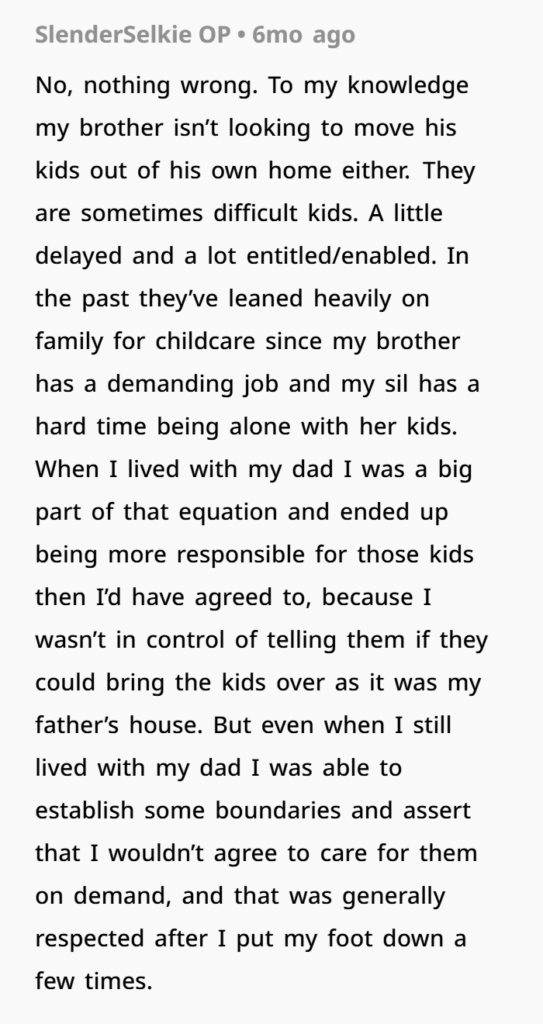
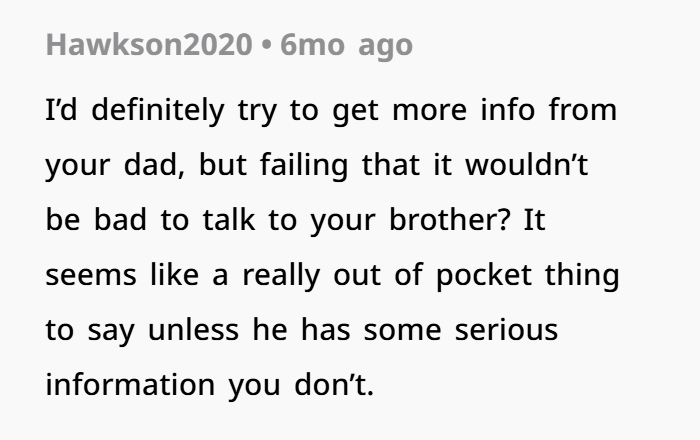
This whole saga is a great example of how complicated family relationships can get when unspoken expectations, old-school gender roles, and health needs collide. OP’s doing the right thing—setting firm boundaries, communicating with her siblings, and not letting her dad’s fixation spiral unchecked.
If you’re in a similar spot? Here’s your reminder: you don’t have to accept a role in your family just because someone imagines you in it. Not without your consent.
And if someone’s messing with your home, your health, or your peace—yeah, it’s okay to say: “What the actual fck are you doing, Dad?”*

